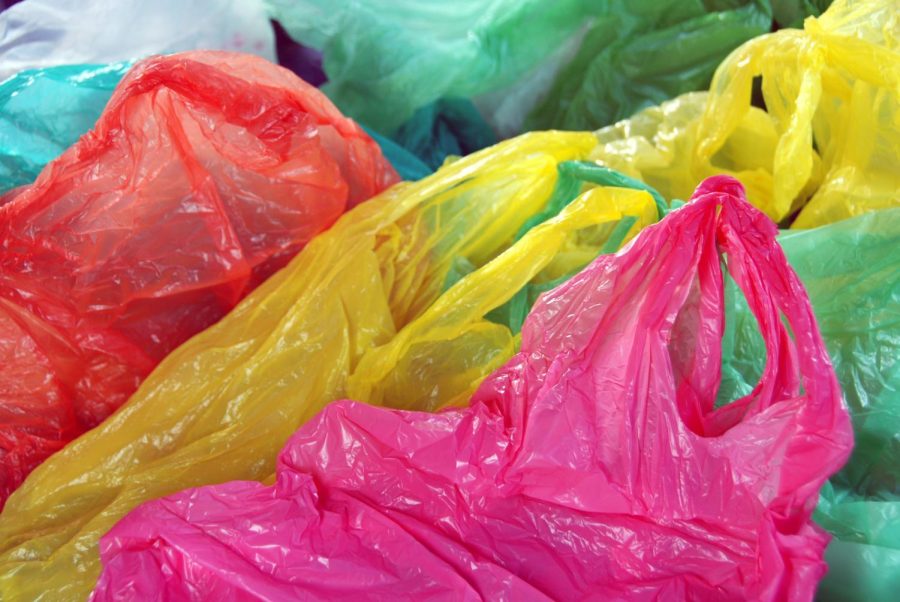Opinion | Modern life must divorce itself from plastic
With recent research, it appears that retiring plastic from our lives should be an expedited process.
April 7, 2022
On Mar. 24, it was reported that microplastics have been found in human blood. The finding was supported in a study co-authored by Professor Dick Vethaak, who spoke in an interview with The Guardian.
“Are the particles retained in the body? Are they transported to certain organs, such as getting past the blood-brain barrier?” Vethaak asked.
These are questions that scientific research has yet to answer, showing the dubious knowledge we have on the effect of such an invasive material on our bodies and our culture. We have learned to shake hands with this devilish commodity, holding its hand while we carry groceries, and unknowingly consuming it in the food we eat.
Even worse, infants are the most vulnerable to it.
We need to urge our local governments to support bills that limit our usage of single-use plastics that are very often dumped into our environments, whether that is holding businesses and manufacturers accountable through taxes as previously proposed last year, or even making environmentally-friendly packaging more accessible.
One of these types of plastics that can be found in our blood is polyethylene, the kind used in carrying bags and food containers. This type of plastic has the highest propensity to be dangerous because plastic bags are an extremely common occurrence in our trash. Due to winds, and careless littering, they have also been a plague on the natural world.
Plastic can be found in our solid and liquid waste. It can damage human cells and be found in placentas, the essential organ that babies live off until birth. It can be deduced from this that there is a potential for cancer risks and for us to be born with these invasive plastics in us. Truly chilling.
We have an opportunity to ban these bags, as was presented to us in a call to action two years ago from the Iowa chapter of Sierra Club, a non-profit environmental organization based in every U.S State including Puerto Rico and Washington D.C. The risk of future generations having embedded plastics in their diet and bodies should veto any argument for convenience.
This call to action is in support of bill HF2207, which gives counties and cities the ability to ban or fee plastic bags.
“Across the country, cities are enacting ordinances that ban single-use plastic bags,” the post reads. “But in Iowa, cities and counties are forbidden to enact an ordinance banning single-use plastic bags or even an ordinance mandating retailers charge for single-use plastic bags.”
Currently, Iowa lawmakers have done little to hold plastic manufacturers accountable. The most recent development regarding plastic bags occurred in 2017, when Iowa governor Terry Branstad signed a law that outlawed the banning of plastic bags themselves.
It isn’t just the potential for invasive plastics to ruin our health that’s terrifying, but the fact that our hubris as a factory-fueled civilization has led to this point; that for those who take part in its norms, come with the risk of having an infamously irremovable man-made unnatural material within them.
Plastic is just as bad as lead, a material also commonly used for its time but if not, even worse. It was a material widely used in paint, car gas, and toys. With research, though, scientists figured out the psychological and physical tolls of lead, and now we use it far less openly. At least paint companies no longer advertise how great lead paint is to the youth.
As animals and agricultural goods get exposed to these plastics–even trace amounts of it–they permanently become a part of the ecosystem, ecosystems we feed ourselves from today. It can get in our salt, our water from leaching plastic bottles we drink, or from pollution which even filters cannot get rid of completely, and even at that, it is unfortunate a solution is in a paywall.
It is important we take measures into our own hands and support the banning of plastic bags within a mass-market scale, urging our lawmakers that short-term inconveniences are no excuse for long-term detriments the likes of which we haven’t even researched enough to know, with one thing being certain, our manufactured material will prove malicious.
Columns reflect the opinions of the authors and are not necessarily those of the Editorial Board, The Daily Iowan, or other organizations in which the author may be involved.














